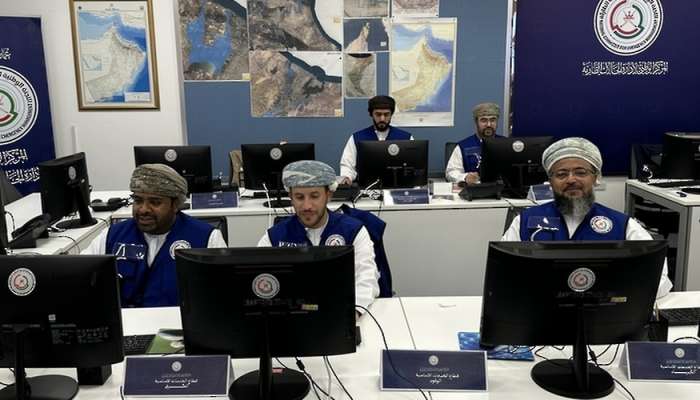The National Committee for Emergency Management (NCEM) in Muscat has decided to activate various national centres, subcommittees, and sectors in preparation for adverse weather conditions expected to affect several governorates in Oman. The affected areas include Muscat, Dhofar, A’Dakhiliyah, North A’Sharqiyah, South Al Batinah, and Al Dhahirah. This proactive approach aims to limit the impacts of the adverse weather and respond effectively to any potential damages that may arise. The activation of these emergency management resources will begin at 5 pm today, signaling a heightened state of readiness among authorities.
The decision to activate national emergency management resources comes as a response to the forecasted adverse weather conditions in several governorates in Oman. By mobilizing national centres, subcommittees, and other sectors, the NCEM aims to address and mitigate potential impacts of the inclement weather. This proactive approach underscores the government’s commitment to protecting the safety and well-being of its citizens and residents. By stepping up preparedness measures, authorities can respond effectively to reports of potential damages and ensure a coordinated response to the evolving situation.
In Muscat, the activation of national emergency management resources signifies a coordinated effort to address adverse weather conditions and their potential impacts. The decision to mobilize various sectors and subcommittees reflects a commitment to proactive disaster risk management and response. By activating these resources, authorities can effectively monitor the situation, assess risks, and take timely action to protect lives and property. The activation of emergency management resources underscores the importance of preparedness and response in mitigating the impacts of adverse weather events.
Throughout the governorates of Muscat, Dhofar, A’Dakhiliyah, North A’Sharqiyah, South Al Batinah, and Al Dhahirah, the activation of national emergency management resources signals a readiness to respond to adverse weather conditions. By activating national centres, subcommittees, and other sectors, authorities can coordinate their response efforts and mobilize resources effectively. The decision to activate emergency management resources highlights the government’s commitment to ensuring the safety and well-being of its citizens and residents. By proactively addressing potential risks and damages, authorities can minimize the impacts of adverse weather events and protect vulnerable communities.
As the activation of national emergency management resources takes effect at 5 pm today, authorities in Muscat and other affected governorates are gearing up to respond to adverse weather conditions. The proactive measures undertaken by the NCEM demonstrate a commitment to disaster risk management and response. By activating national centres, subcommittees, and other sectors, authorities can coordinate their response efforts and mobilize necessary resources. This proactive approach is crucial in addressing the potential impacts of adverse weather events and safeguarding the well-being of communities in Muscat and beyond.
In conclusion, the activation of national emergency management resources in Muscat and several governorates in Oman underscores the government’s commitment to preparedness and response in the face of adverse weather conditions. By mobilizing national centres, subcommittees, and other sectors, authorities can coordinate their response efforts and protect lives and property. The decision to activate emergency management resources reflects a proactive approach to disaster risk management and underscores the importance of readiness in addressing potential risks and damages. As the effects of adverse weather conditions are expected to prevail, the activation of emergency management resources is a crucial step in ensuring the safety and well-being of communities in Muscat and beyond.


























